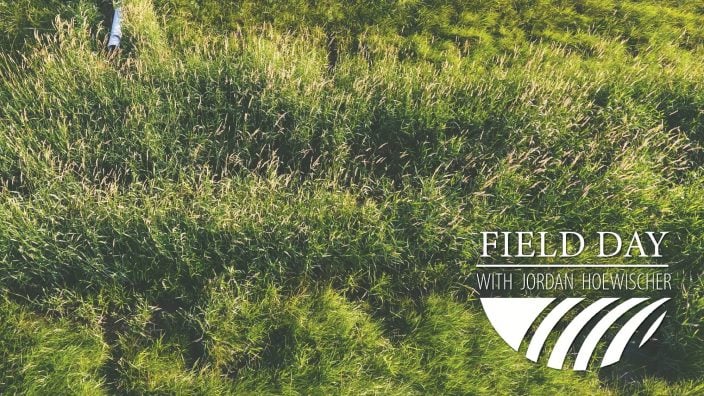Farmer’s Guide to Trucking Regulations available to Ohio Farm Bureau members
The guide includes a farm driver checklist, overview of state and federal regulations and exemptions, CDL qualifications and more.
Read More
Ohio Farm Bureau’s Director of Water Quality and Research Jordan Hoewischer talks with Chris Winslow, director of both Ohio State University’s Stone Laboratory and the Ohio Sea Grant College program, both specializing in research, education and outreach regarding the health of Lake Erie and how it relates to agriculture and the community as a whole.
“We need win-wins,” Winslow says. “We need a healthy lake, but we need a healthy and robust ag industry in Ohio.”
This is the second installment of Field Day with Jordan Hoewischer, an ongoing series of conversations with industry experts and leaders who are helping to shape and secure the future of Ohio’s ag industry for generations to come.
Following are some highlights from Episode 2. Listen to the entire episode here.
Q: What are the goals of the Ohio Sea Grant College program and OSU’s Stone Laboratory?
A: Ohio Sea Grant is a federally funded program modeled off of the land grant programs that exist in the United States. We report to NOAA (National Oceanic and Atmospheric Administration). Because Ohio borders Lake Erie, we have an Ohio Sea Grant program. It’s one of 33 sea grant programs across the country. Our goal is to conduct research on issues present in Lake Erie and get those findings into the hands of stakeholders, academics, decision-makers, etc. Both the Sea Grant program and the mission of OSU’s Stone Lab, as directed by the university, is research, education and outreach as it relates to Lake Erie.
Q: What would you say is the current status of Lake Erie?
A: As far as harmful algal blooms, I would argue that we’re making progress. We’re at a place where people are aware and understanding the complexities of the issue. In terms of nutrient loading and harmful algal blooms we’re maintaining the status quo. If you look across the Great Lakes I would say that Lake Erie is at a moderate health level…across the board it’s probably at a consistent level of impact.
Q: What can farmers and agriculturalists do to bridge the communication gap to the general community?
A: There are fantastic farmers who come to town hall-style meetings and open forums who understand the concerns of other business owners, charter captains, marine owners and tourist destinations and are saying “we as a farming community are trying to be part of the solution.” Farmers are actively engaged. Let people know you are trying to be part of the solution.
Q: Are we making progress on the goals set forth for nutrient load reductions for Lake Erie?
A: Depends on the focus area your looking at. Are we making progress in water treatment solutions and understanding the effects to human health, yes. We are more focused and on target with education and getting the message out. As far as showing a measurable change in the watershed, there are just so many acres in the watershed I don’t know if we’ve moved that dial far enough yet. I think we’re still in that period where blooms are primarily dictated on the spring rainfall. As best management practices on the agricultural landscape ramp up, I think you’ll see a separation between is the bloom driven by rain or is it driven by actual work that’s on the ground.


The guide includes a farm driver checklist, overview of state and federal regulations and exemptions, CDL qualifications and more.
Read More
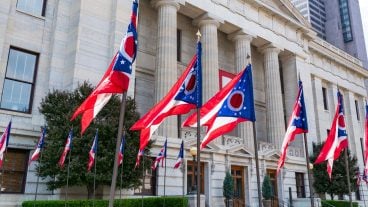
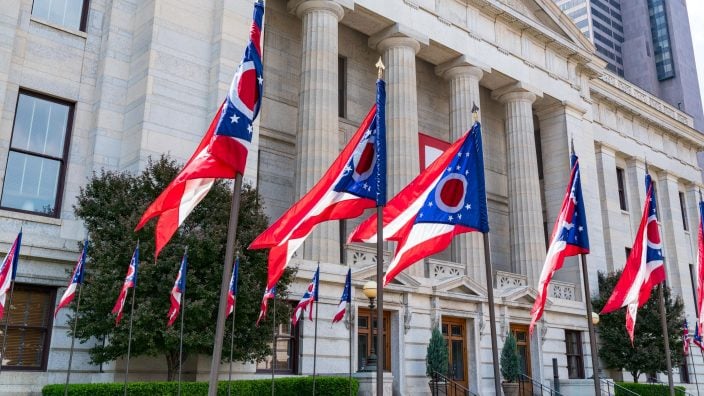
Ohio Farm Bureau provides opportunities, platforms and resources to help you develop your voice in the industry and give farmers a seat at the table with leaders and legislators.
Read More

The emergency fuel waiver to allow the sale of summer gasoline blends containing 15% ethanol will lengthen the period during which Americans can continue buying E15 from June 1 to Sept. 15.
Read More

The Small-Scale Food Business Guide covers federal and state regulations for selling food products such as raw meat, dairy, eggs, baked goods, cottage foods, fruits and vegetables, honey and more.
Read More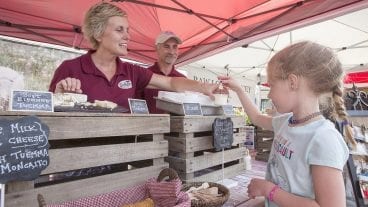
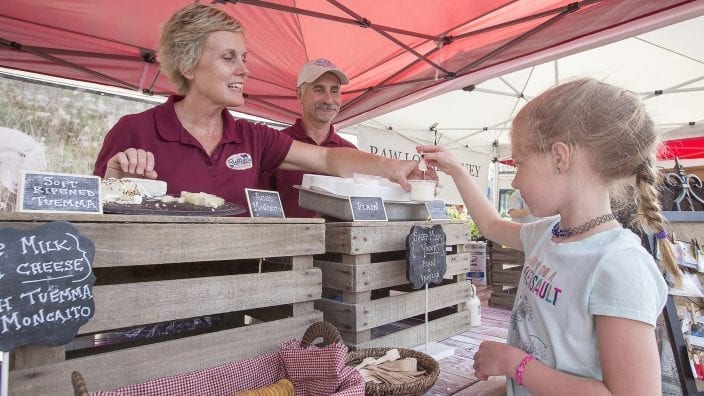
New resources and technology are broadening the different types of sales tools and strategies available to farmers.
Read More

ODA will enroll 500,000 acres into the program for a two-week sign-up period, beginning April 22, 2024, through May 6, 2024. Contact local SWCD offices to apply.
Read More

Katie Share of Columbus has been named ExploreAg and Youth Development Specialist for Ohio Farm Bureau.
Read More

Mary Klopfenstein of Delphos has been named Young Ag Professional and Ag Literacy Program Specialist for Ohio Farm Bureau.
Read More

The plan has been updated to give sole proprietors access to more rate stability and a smart solution that offers potential savings on health care.
Read More

The American Farm Bureau Federation, in partnership with Farm Credit, is seeking entrepreneurs to apply online by June 15 for the 2025 Farm Bureau Ag Innovation Challenge.
Read More